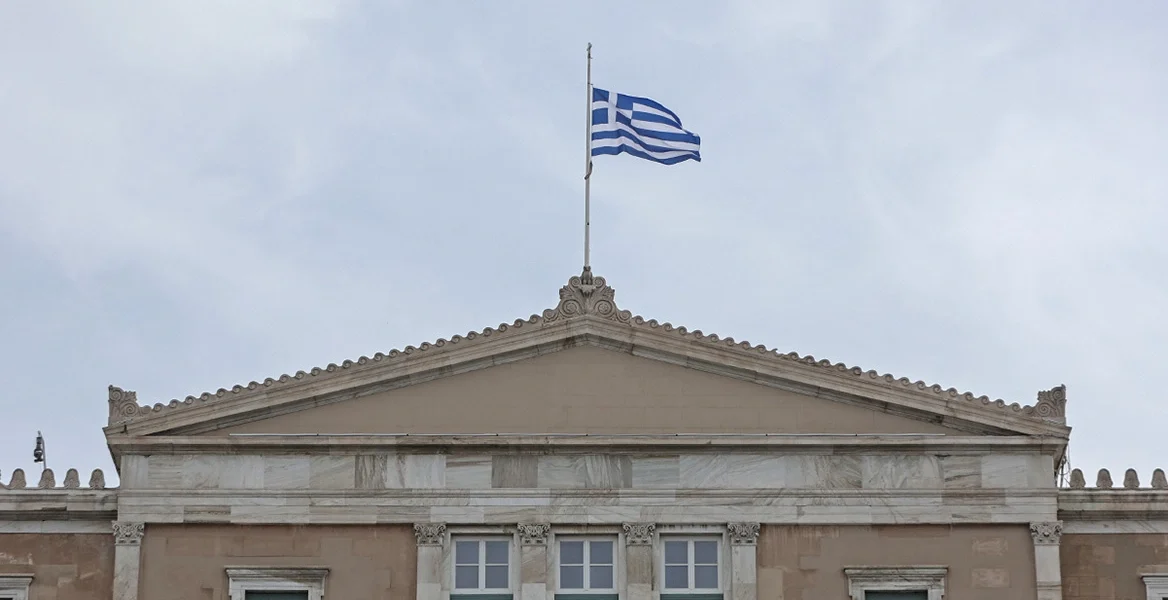Interim Prime Minister Ioannis Sarmas declared national mourning after the shipwreck tragedy in Pylos that resulted in the loss of 79 lives.
By the decision of acting Prime Minister Ioannis Sharma, a three-day national mourning was declared for the victims of the shipwreck in Pylos, with 79 dead. The national mourning comes into force from today, 14 to 16 June 2023, with the thought of all the victims of the ruthless traffickers who take advantage of human misery, as characteristically stated in the announcement of the prime minister's press office.
What does national mourning signify, and when is it declared?
National mourning is a term that describes the sign of mourning that comes from grief and sorrow for some unfortunate event and is officially declared by the governments of states.
It can come from the death of many people after a natural disaster, a terrorist attack or some other unfortunate event, or the death of a particularly important person for a nation or people.
During it, in some cases, it is decided to close public services or schools, hang the flags at half-mast and do other symbolic movements. However, it has not been decided to close the schools in this particular case.
Closure A similar manifestation of shorter mourning is observing a minute's silence at various gatherings and gatherings.
When has national mourning been declared in Greece
Greece has declared national mourning 17 times, with the first in 1994 after the death of Melina Merkouri.
The times when national or public mourning has been declared in Greece:
In March 1994, after the death of Melina Mercouri, national mourning was declared.
In June 1996, after the death of Andreas Papandreou, a four-day public mourning was declared.
In July 1996, a three-day public mourning was declared after the exile of Parthenius III of Alexandria.
In April 1998, national mourning was declared for the death of Konstantinos Karamanlis.
In April 1998, four days of public mourning were declared after the exile of the Archbishop of Athens and All Greece Seraphim.
September 14th was declared a day of national mourning due to the attack of September 11.
Three days of public mourning due to the death of the Patriarch of Alexandria, Peter VII (11/9/2004)
August 16, 2005, was declared a day of public mourning after the Helios crash a day earlier.
In the summer of 2007, of the extensive fires that affected the country in many places, with Ilia receiving the greatest destruction and resulting in the death of at least 63 people, a three-day national mourning was declared.
In January 2008, a four-day national mourning was declared for the death of the Blessed Archbishop of Athens and All Greece Christodoulos,
In May 2017, 4 days of public mourning after former Prime Minister Konstantinos Mitsotakis died.
In November 2017, the deadly floods in Western Attica cost the lives of 23 people in Mandra.
In July 2018, three days of national mourning were declared for the deadly fire in Mati.
Three days of national mourning (September 6, 7, 8, 2021) after the death of Mikis Theodorakis on Thursday, September 2, 2021.
On October 27, 2021, the day of the funeral of Fofi Gennimata, President of KINAL.
Three days of public mourning (December 27, 28, and 29, 2021) following the death of the former President of the Republic Karolos Papoulias.
Three days of public mourning (February 3, 4, and 5, 2022) following the death of the former President of the Republic Christos Sargetakis.
Three days of national mourning from 1st to 3rd March due to the train accident in Tempe with 57 dead.

